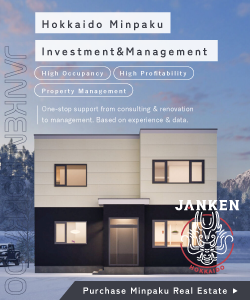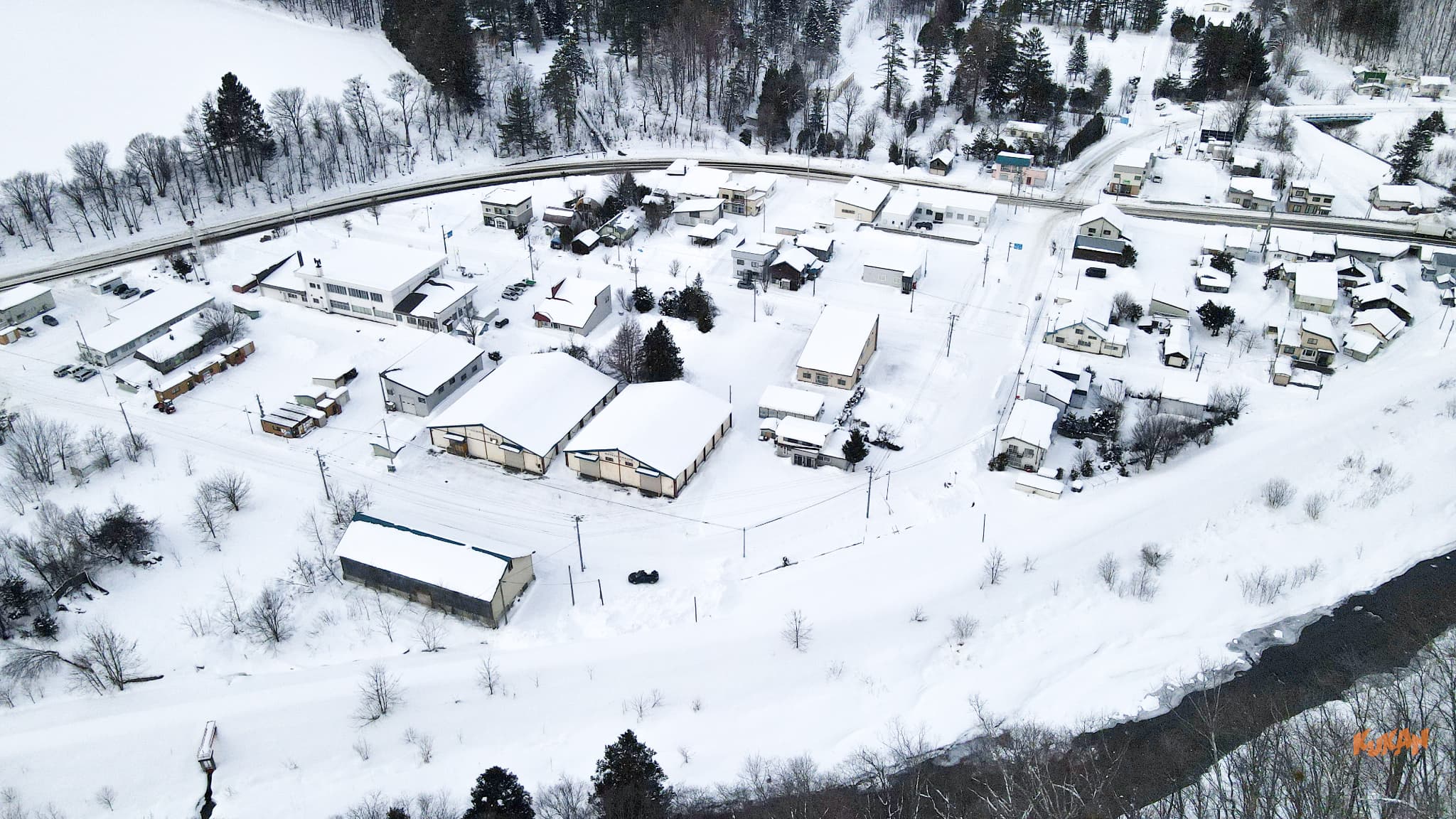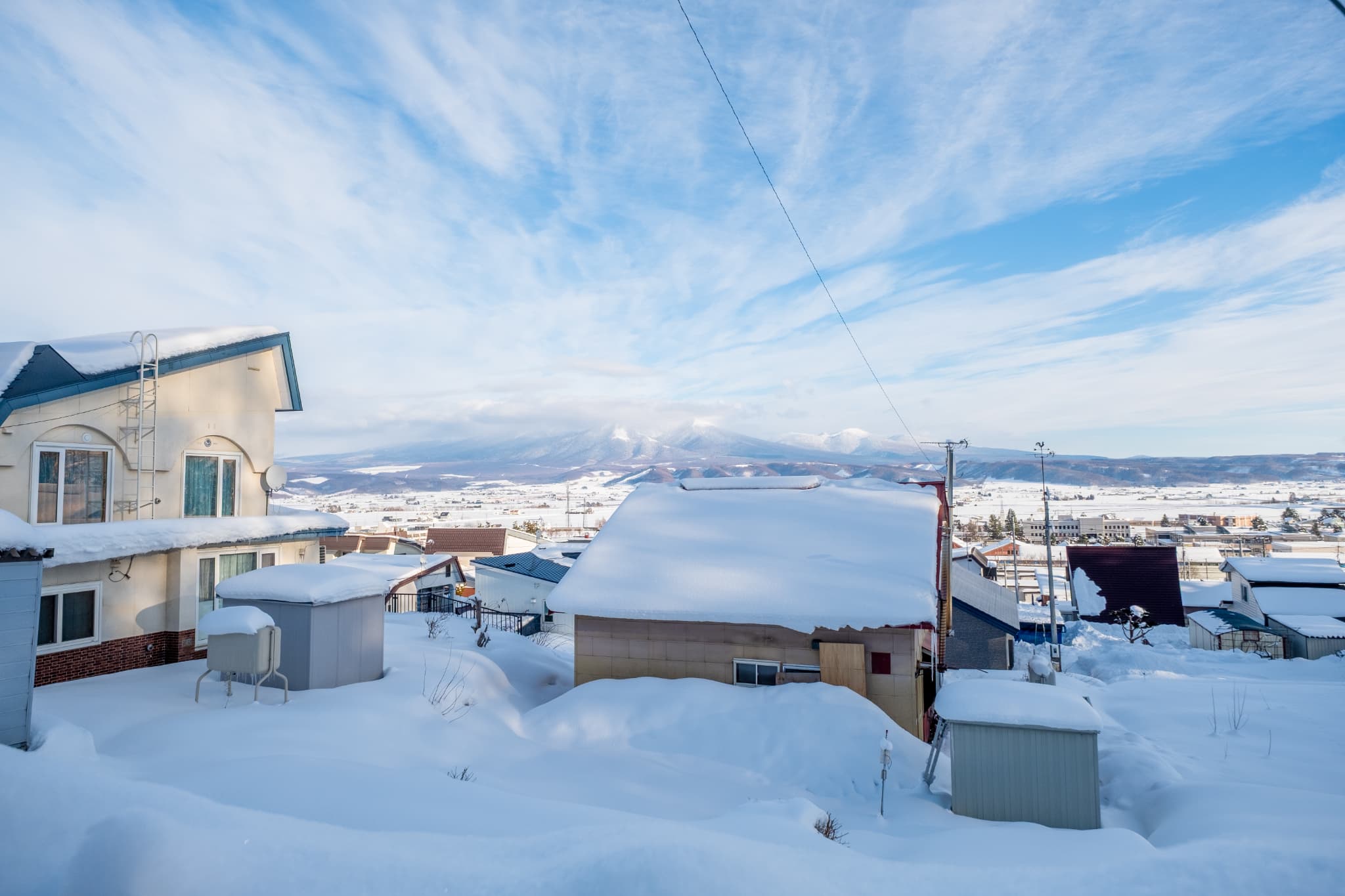The Rise of Vacation Rentals in Japan: Essential Tips for Owners and Investors
2023.12.09

With the increasing influx of foreign tourists and the growth of the domestic tourism industry, vacation rental businesses in Japan are gaining significant attention.
Are you considering starting your own vacation rental operation?
In this article, we’ll clearly explain the essential steps and considerations for managing a vacation rental in Japan, including compliance with national and local regulations.
This guide is a must-read for anyone interested in real estate investment in Japan, offering valuable ownership advice and tips for aspiring vacation rental owners.
Contents
- 1 Vacation Rental Management in Japan: A Comprehensive Guide for Foreign Investors
- 2 Essential Points to Consider Before Starting a Vacation Rental Business in Japan
- 2.1 1.Three Vacation Rental Business Models | Essential Tips for Starting
- 2.2 2.Thoroughly Assess the Location | Essential Tips for Starting
- 2.3 3.Some Areas Prohibit Vacation Rentals| Essential Tips for Starting
- 2.4 4.Confirm Necessary Fire Safety Equipment| Essential Tips for Starting
- 2.5 5.Check Management Regulations for Condominiums | Essential Tips for Starting
- 2.6 6.Mortgage Deductions or Tax Reliefs May Not Apply| Essential Tips for Starting
- 2.7 7.Check with Creditors for Owned Properties| Essential Tips for Starting
- 3 Operational Tips for Vacation Rental Management
- 3.1 1.Cohesion in Interior and Amenities | Vacation Rental Management Tips
- 3.2 2.Renovate for a Comfortable Space | Vacation Rental Management Tips
- 3.3 4.Detailing Troubleshooting in Rental Agreements | Vacation Rental Management Tips
- 3.4 5.Focus on Your Listing Content | Vacation Rental Management Tips
- 3.5 6.Enroll in Vacation Rental Insurance | Vacation Rental Management Tips
- 3.6 7.Maintaining Guest Registers for 3 Years | Vacation Rental Management Tips
- 4 Unique Considerations Under the New Vacation Rental Law
- 4.1 1.Meeting Legal Requirements | Vacation Rental Specifics
- 4.2 2.The 180-Day Operation Limit | Vacation Rental Specifics
- 4.3 3.Post-Opening Reporting Obligations | Vacation Rental Specifics
- 4.4 4.Possible Delegation of Management Tasks | Vacation Rental Specifics
- 4.5 5.Mandatory Sanitation Measures | Vacation Rental Specifics
- 5 In Summary: Navigating Vacation Rental Management in Japan
Vacation Rental Management in Japan: A Comprehensive Guide for Foreign Investors
Vacation rental businesses in Japan are drawing attention, fueled by the rising demand from an increasing number of foreign tourists. Starting a vacation rental business requires meticulous planning, from handling various procedures to enhancing the appeal of your property. Let’s delve into the right steps and best practices for successful management.
In this article, we highlight crucial points to consider when operating a vacation rental. We’ve divided the information into two main sections, each thoroughly explained for your understanding.
Before Starting Your Vacation Rental:
- Understanding the Three Types of Vacation Rental Operations
- Carefully Choosing the Right Area
- Recognizing Areas Where Vacation Rental Businesses Aren’t Permitted
- Checking Necessary Fire Safety Equipment
- Reviewing Management Regulations for Apartment-based Rentals
- Potential Ineligibility for Mortgage Deductions or Mortgage Tax Relief
- Confirming with Creditors When Using Owned Properties
Key Points in Vacation Rental Management:
- Creating a Unified Look with Interior and Amenities
- Renovating for a Comfortable Space
- Using a Welcome Guide to Prevent Issues
- Including Trouble-handling Clauses in Lease Agreements
- Paying Attention to Online Listing Details
- Securing Vacation Rental Insurance
- Maintaining Guest Registers for Three Years
Essential Points to Consider Before Starting a Vacation Rental Business in Japan
As vacation rental businesses gain traction in Japan, it’s crucial for prospective investors to be well-informed before entering this market. Understanding these points beforehand can help you skillfully navigate potential risks and ensure a smooth operation.
Before diving into vacation rental management, pay attention to these seven critical aspects:
- There are three types of vacation rental operations.
- Thoroughly evaluate your chosen area.
- Be aware of regions where vacation rental businesses are not permitted.
- Check the required fire safety equipment.
- If starting in a condominium, review the management regulations.
- Mortgage deductions or tax reliefs might become inapplicable.
- For owned properties, confirm with creditors.
Now, let’s delve deeper into each of these points:
1.Three Vacation Rental Business Models | Essential Tips for Starting
Understanding the different approaches to vacation rental operations is vital as each type has its unique features. Choose one that aligns with your management style:
- Traditional Inn-Style Rentals: Ideal for year-round operation!
- No limit on operational days throughout the year.
- However, it often requires converting the property’s use to ‘hotel or inn,’ which might need substantial renovations and approval from local authorities.
- Front desk staff or managers might be required.
- Special District Rentals: Tailored for foreign tourists!
- Operates under a special scheme, allowing year-round operation without converting the property’s use.
- No requirement for front desk staff or managers.
- Note: This option is limited to specific districts catering primarily to foreign tourists.
- New Law Rentals: A more accessible model based on recent regulations!
- Allows for relatively easy and quick start-up, primarily based on notification.
- Limited to residential properties with a maximum of 180 operational days per year.
- More suited for a side business utilizing spare space rather than a full-scale rental enterprise.
For detailed explanations of each model and application procedures with local authorities, please refer to our comprehensive guide linked below.
This article provides essential investment tips and ownership advice for foreign investors interested in Japan’s vacation rental market, helping you understand the various operational models and their respective implications.
2.Thoroughly Assess the Location | Essential Tips for Starting
A pivotal factor in successful vacation rental management is choosing an area with high demand.
Consider tourist attractions, accessibility from stations or airports, and the volume of tourists to select a location with high potential for guest attraction.
Key aspects to evaluate include:
- Convenience from the nearest station or airport.
- Ease of access to major commercial areas or tourist spots.
- Room occupancy rates, tourist inflow, and booking status in the targeted municipality.
3.Some Areas Prohibit Vacation Rentals| Essential Tips for Starting
Be aware that some municipalities have regulations or prohibitions on vacation rental operations.
In some cases, they might require actions like notifying neighbors about your rental business.
Before investing, first check the regulations of the municipality you’re considering for your vacation rental.
A recommended resource for this information is the Japan Tourism Agency’s vacation rental system portal site, where you can find details on each municipality’s regulations and contact information.
4.Confirm Necessary Fire Safety Equipment| Essential Tips for Starting
For vacation rental properties, it’s essential to install more advanced fire safety equipment than typically required for residential homes.
Vacation rental properties are treated as ‘specific fire prevention targets’ under the Fire Service Act, mandating advanced firefighting equipment even if only renting out a single room.
The required equipment varies depending on the size of the room and the type of rental operation (inn-style, special district, or new law rentals).
Familiarize yourself with what’s necessary for each room in advance.
For detailed information, please refer to the Ministry of Internal Affairs and Communications Fire and Disaster Management Agency’s website on fire prevention measures.
5.Check Management Regulations for Condominiums | Essential Tips for Starting
When starting a vacation rental in a condominium unit, it’s crucial to ensure that the management regulations do not prohibit such operations.
Even if not explicitly banned, phrases like “use as residential purposes only, not for profit-making” can implicitly restrict vacation rental operations.
Under the new vacation rental law, rentals are not permitted if the regulations prohibit non-residential use.
However, there may be room for negotiation with property owners or managers to amend the regulations.
6.Mortgage Deductions or Tax Reliefs May Not Apply| Essential Tips for Starting
Starting a vacation rental in a mortgaged property could mean forfeiting mortgage deductions or tax reliefs.
Since these incentives are for property purchases, using your home for business like vacation rentals might exclude you from these benefits.
However, it’s possible to operate a vacation rental and still receive tax incentives in some cases, so consulting with a tax professional or vacation rental management firm is advised.
7.Check with Creditors for Owned Properties| Essential Tips for Starting
For properties purchased with a mortgage, consult with your financial institution before starting a vacation rental.
Mortgage agreements typically expect the property’s use as a residence, so confirm that vacation rental operations won’t violate this clause.
Starting a rental business without informing your bank may lead to contract breaches and demands for immediate full repayment.
Operational Tips for Vacation Rental Management
Now, let’s delve into the operational tips for managing a vacation rental. While obtaining permission to operate is just the starting point, there’s much more to consider for a successful and attractive rental.
This section covers key points to avoid pitfalls and enhance your rental’s appeal.
Operational Tips for Vacation Rental Management are broadly categorized into seven key areas:
- Cohesion in Interior and Amenities
- Renovate for a Comfortable Space
- Preventing Issues with a Welcome Guide
- Detailing Troubleshooting in Rental Agreements
- Focus on Your Listing Content
- Enroll in Vacation Rental Insurance
- Maintaining Guest Registers for 3 Years
1.Cohesion in Interior and Amenities | Vacation Rental Management Tips
The interior and amenities greatly influence guest satisfaction. When selecting these, consider:
- Choosing items that look good in photos for your rental listing.
- Aligning with the room’s theme or concept.
Avoid overly expensive items to maintain profitability while focusing on cleanliness and a unified look within your budget.
2.Renovate for a Comfortable Space | Vacation Rental Management Tips
Comfortable accommodation is key. Important aspects include:
- Converting toilets to Western-style.
- Separating bathrooms and toilets.
- Regularly updating wallpapers or flooring for cleanliness.
Since many guests are international travelers, Western-style toilets and separate bathrooms are essential.
A clean and well-maintained interior also enhances long-term stays.
3.Preventing Issues with a Welcome Guide | Vacation Rental Management Tips
A well-prepared welcome guide can significantly prevent potential issues. Include:
- House rules.
- Equipment manuals.
- Emergency contacts.
- Emergency procedures.
- Local attractions and restaurants.
- Currency exchange locations.
Key considerations for the guide:
- Cater to international travelers with translations in English, Chinese, and Korean.
- Include seemingly obvious details for foreign guests.
- Highlight noise and waste disposal guidelines to prevent common issues.
For instance, stating “No shoes indoors” in English can avert misunderstandings. Catering to foreign guests not only prevents issues but also encourages repeat visits.
Adding a welcome message can enhance the experience further.
4.Detailing Troubleshooting in Rental Agreements | Vacation Rental Management Tips
In vacation rental management, having a rental agreement that addresses potential issues is crucial.
When starting your rental business, ensure your contract covers necessary points for smooth operation. Key aspects to include are:
- Setting check-in and check-out times.
- Outlining prohibited activities.
- Detailing cleaning arrangements.
- Specifying rules to avoid inconveniencing neighbors.
- Clearly defining responsibilities for any damage to in-room items.
Having a well-documented approach prevents issues from going unresolved.
5.Focus on Your Listing Content | Vacation Rental Management Tips
Effectively presenting your property on rental sites is key to smooth operation. Three tips for an impactful listing are:
- Choose Memorable Photos: Clean and stage areas for photogenic appeal. Quality pictures with a sense of cleanliness leave a lasting impression.
- Craft a Simple, Attractive Title: Make your listing stand out with clear, appealing titles, like “10-Min Walk from Asakusa with Onsen – [Your Property Name].”
- Provide Multilingual Support: Cater to international guests with translations in English, Chinese, and Korean. Consider professional translation services for natural and accurate language.
Maximize your listing’s potential on rental sites to attract more guests.
6.Enroll in Vacation Rental Insurance | Vacation Rental Management Tips
Residential insurance might seem sufficient, but it often doesn’t cover damages, theft, or fire incidents during vacation rental usage. Investing in dedicated vacation rental insurance is vital for comprehensive protection.
The yearly cost ranges between 25,000 to 50,000 yen, making it a wise investment.
Here’s a compilation of typical insurance options for reference.
| Airbnb’s Host Insurance Program | Pros: ・Host protection insurance provided by Airbnb. ・Automatically applicable without the need for additional charges or applications. ・Covers claims for bodily injury or property damage made against the host as a result of an accident. Cons: ・Does not replace home or renters insurance. Excludes coverage for cash, securities, and properties not owned or managed by the host. ・Normal wear and tear, as well as scratches, are not covered under the “Japan Host Insurance.” ・Limited coverage for specific items like precious metals, artworks, and collectibles. |
| BrightReach (Underwritten by Mitsui Sumitomo Insurance Co., Ltd.) | ・Covers a wide range of damages to owners, guests, and third parties. ・BrightReach Co., Ltd., which offers this insurance, also provides services for introducing vacation rental properties and financial consulting. Starting from 45,000 yen per year. |
| Vacation Rental & Guesthouse Association’s Property Guarantee Service (Underwritten by Mitsui Sumitomo Insurance Co., Ltd.) | ・Broad coverage for damages to owners, guests, and third parties. Includes support for on-site response in case of trouble. ・Annual membership fee determined by the size of the house, starting from 25,000 yen. |
7.Maintaining Guest Registers for 3 Years | Vacation Rental Management Tips
In vacation rentals, it’s imperative to record and preserve guest information for three years.
This includes:
- For residents of Japan: Guest’s name, address, occupation, and dates of stay.
- For non-residents: Nationality and passport number.
Owners must note that in absentee rental scenarios, if the management company fails to maintain these records, the owner might face penalties under the new rental law.
Vigilance in record-keeping is crucial.
Unique Considerations Under the New Vacation Rental Law
The recent surge in vacation rentals governed by the new law brings unique considerations. Here are five crucial points under this law:
- Compliance with Legal Requirements
- The 180-day Annual Operation Limit
- Post-Opening Reporting Obligations
- Possible Delegation of Management Tasks
- Mandatory Sanitation Measures
Let’s delve into each of these aspects, providing essential tips and advice for vacation rental investors in Japan, focused on successful ownership and management within the legal framework of the new vacation rental law.
Unique Points to Consider When Starting a Vacation Rental Under Japan’s New Law
1.Meeting Legal Requirements | Vacation Rental Specifics
Starting a vacation rental under Japan’s new law requires compliance with specific facility and residency requirements.
These include having a kitchen, bathroom, toilet, and washbasin, and ensuring the property is an actual residence, including rental homes and second houses like villas.
Business properties are generally not suitable for these purposes.
2.The 180-Day Operation Limit | Vacation Rental Specifics
Under the new law, vacation rentals are limited to 180 days of operation annually.
This makes the venture more suited for supplementary income rather than a primary business.
3.Post-Opening Reporting Obligations | Vacation Rental Specifics
Owners are obliged to report to the prefectural governor every two months, detailing the number of stay days, guests, and their nationalities.
Failure to report or false reporting can lead to a fine of up to 300,000 yen.
4.Possible Delegation of Management Tasks | Vacation Rental Specifics
The new law mandates delegation of management tasks unless the owner resides in the property and is present during guest stays (within an hour).
This is required regardless of the scale, and while it incurs additional costs, it eases the burden of direct management and brings experienced advice.
5.Mandatory Sanitation Measures | Vacation Rental Specifics
Owners must undertake essential sanitation measures like regular cleaning, ventilation, laundering of bedding, and reporting any infectious diseases to health authorities.
Even if management is outsourced, owners should regularly check to ensure compliance.
The above points are crucial for foreign investors interested in Japan’s vacation rental market, offering practical tips and ownership advice for a successful investment journey.
This article has meticulously outlined the key considerations for managing a vacation rental, a venture increasingly popular due to the rising influx of foreign tourists in Japan.
However, it’s crucial to note that starting a vacation rental business can be costly, and it’s wise to understand these points thoroughly for smart management and optimal revenue generation.
Consulting with vacation rental management companies for rental pricing estimates can also be a strategic move.
Key Points Before Starting:
- Understand the three main types of vacation rental management.
- Carefully choose your location based on tourist appeal and accessibility.
- Be aware of areas where vacation rental businesses are not permissible.
- Ensure compliance with necessary fire safety equipment.
- For condominiums, check the management rules thoroughly.
- Be cautious about the implications on housing loan deductions and taxes.
- For owned properties, consult with your creditors.
Essential Operational Considerations:
- Create a cohesive theme for interior and amenities.
- Renovate for comfort and appeal.
- Prevent issues with a comprehensive welcome guide.
- Include specific clauses in rental agreements for handling potential disputes.
- Craft compelling listings on reservation sites.
- Secure yourself with vacation rental insurance.
- Maintain guest registers for three years.
For foreign investors interested in Japan’s real estate, these insights offer valuable tips and ownership advice, emphasizing the importance of strategic planning in the thriving field of vacation rentals.


















